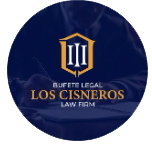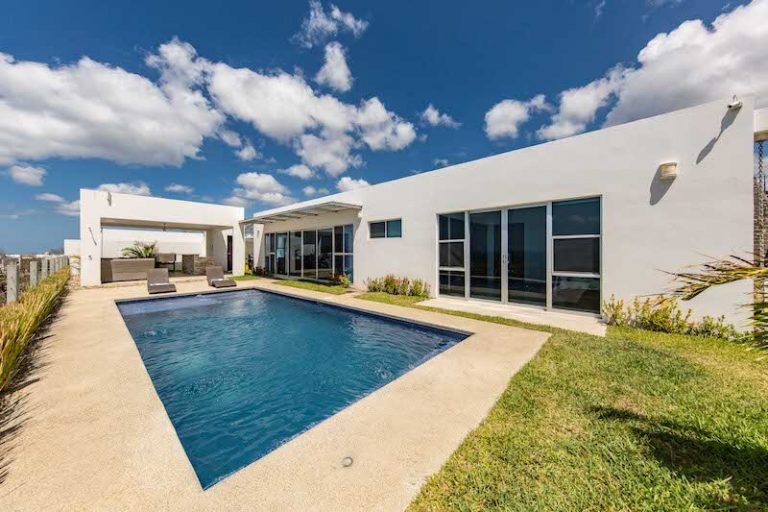How to Buy Property in Nicaragua – Buyer’s Guide by William Cisneros
Nicaragua has become a new destination, which is why many people are interested in this country. People are coming as much to spend their vacations as to live as retirees or to have a business and earn a living in Nicaragua. In any case, people buy property for various purposes. It can be a beach house, a home downtown, a lot, a farm, a hotel, a business, etc.
This article aims to provide a general guide and share information about Real Estate transactions in Nicaragua to help anyone interested in the property buying process.
Buying property in Nicaragua can be quite a challenge. With its complex legal system and strict property regulations, it may seem like a challenging task. But with the proper guidance and knowledge, you can navigate this process easily. In this blog post, we’ll provide you with all the information you need to know about buying property in Nicaragua. From understanding the legal framework to finding the best deals on properties, our guide will help you purchase your dream home without any hassle!
Location, Location, Location: Choosing the Right Area to Buy Property in Nicaragua There are a few things to consider when choosing the right area to buy property in Nicaragua. The first is the climate. Nicaragua has a tropical climate, so if you’re looking for cooler temperatures, you’ll want to head to the highlands. The second is proximity to amenities. If you’re looking for a more rural setting, you’ll want to find an area further away from towns and cities. The third is safety. Some areas of Nicaragua are safer than others, so it’s essential to do your research before making a purchase.
Regarding climate, Nicaragua has two principal regions: The Pacific lowlands and the highlands. The Pacific lowlands have a tropical climate with year-round warm temperatures and high humidity. The highlands have a temperate climate with cooler temperatures and less humidity. So if you’re looking for cooler temperatures, the highlands are the way to go. However, if you don’t mind the heat, the Pacific lowlands offer some of the most beautiful beaches in Central America. Safety is always an important consideration when buying.
When you find the perfect property in Nicaragua, it’s time to start thinking about going through with the sale.
Here are a few things to keep in mind during the process:
1. Make sure you have all of your finances in order before making an offer on a property. This includes getting pre-approved for a mortgage (if you’re planning on financing part of the purchase) and having enough cash on hand for a down payment and closing costs.
Purchasing property in Nicaragua can be a great investment, but it is important to make sure you do your research. We hope this buyer’s guide has given you all the information needed to make an informed decision about buying property in Nicaragua and shown how easy the process can be when done correctly. From finding the perfect location and making sure all paperwork is in order, we have gone over everything that needs to be taken into account when it comes to purchasing property abroad. With these tips, you should feel confident enough to take the next step towards owning real estate overseas!
1. Once you’ve found a property you’re interested in and have your finances sorted out, it’s time to make an offer. Be sure to work with a real estate agent or lawyer who can help negotiate the best possible price for the property.
2. Once you’ve found a property you’re interested in and have your finances sorted out, it’s time to make an offer. Be sure to work with a real estate agent or lawyer who can help negotiate the best possible price for the property.
3. Once your offer is accepted, there are a few more steps to go through before the sale is finalized. These include getting a home inspection, arranging for title insurance, and signing the purchase contract.
4. Registering the Property.
FROM FUNDS ALREADY DEPOSITED, THE ATTORNEYS PAY CLOSING COSTS
The closing costs vary based on the valuation of the property.
The fees include the following:
Municipal Tax: 1% of the deed price (depending on the municipality)
Property Registration Fee: 1% of the deed price or 1% of the appraisal performed by the municipality, whichever is greater.
Legal Fees: minimum 1 and up to 1.5% of the purchase price plus between $100 -$250 government-agency-related costs
Transfer Tax: Based on the deed price and the tax assessment, whichever is higher. The government will perform a survey and assess a value after closing.
The transfer tax is then applied based on the greater of the two numbers. The tax rate is:
• 1% for properties under $50,000
• 2% for properties between $50,000 and $100,000
• 3% between $100,000 and $200,000
• 4% between $200,000 and $300,000
• 5% between $300,000 and $400,000
• 6% between $400,000 and $500,000
• 7% over $500,000
An important note is that the assessment is performed after the closing.
So the attorneys will estimate the closing costs based on government information, but there may be variations.
Real Estate Commission: By custom, these are paid by the seller and already included in the sales price of listed properties. Hence the buyer is responsible for the above expenses, the seller is responsible for the commissions. In most cases, they are fairly equal, creating a modicum of equality in expenditures borne by both parties.
SETTLEMENT OF EXPENSES
Escrow Service: A little over 0.5% of the purchase price. If the same law firm carries out closing, you get usually get a discount of the 50% on the escrow fee.
Translation Fees: Varies on the document needs of the buyer
Power of Attorney: $50 to $100, depending on the law firm
.
Survey and Cadastral Certificates: Between $150 to $250 depending on the surveyor and the size of the lot
.
Wire Fees: They are applied when wiring money to Nicaragua, varying from $25 to $100, depending on the bank and the amount of the transfer.
The final steps to complete the purchase process can only be completed once the contracts have been signed and the property has been paid for. Your lawyer and realtor will complete those steps over the coming months. Usually it takes 90 days, post-closing, for your property to be duly registered with all of the government agencies in Nicaragua.
I like to make clear that you are the legal owner of the property on closing day.
You own it outright. The registration process undertaken by the attorney, as part of their fees, is just the sequential registration of the sale with the various government institutions.
After all of that is taken care of, it’s finally time to close on the property and move in! Congratulations – you’re now a proud owner of Nicaraguan real estate!
List of Important Documents (Spanish Terminology)
- Escritura: The deed. Here in Nicaragua, the final document known as Escritura is equivalent to the title or deed in other countries. It demonstrates who holds legal ownership of the property.
- Plano: The plotted map. It is a physical map that shows the boundaries of the land.
- Solvencia Municipal: Municipal solvency. This document shows that the property taxes are up to date.
- Libertad de Gravamen: Certificate of No Liens. This document shows that the property has no liens, outstanding loans, or other encumbrances.
- Historia Registral: Property Historical Records This document shows the public history of the land for the previous thirty years.
- Promesa De Venta: Promise of sale. If there is seller-financing, this document secures the property and defines the payment terms and schedule.
- Certificate of No Objections: Certificado de No Objeción Relevant to properties near the ocean or farms.
Other Terms to Know:
- Catastro: Office where the Plano Plot is kept (measurements, physical description) and the official map with your name(s) is registered
- Registro Público de Propiedad: Public Real Estate Registry. Reference to the main office of Property Public records, where Escrtirua is kept.
- DGI (equivalent to the IRS or Canada’s CRA): Institution responsible for assessing the sales tax on the property.
- Impuesto de Bienes y Inmuebles: Annual real estate tax. Typically, around 0.8% of the value of the property. If this is paid before March of each year, there is a 10% discount.
-
HOA: Homeowners Association Fee. If you buy in a private development, there will usually be a monthly fee to cover road maintenance and possibly security and utility services. Check with your agent to compare costs and benefits and determine which development is correct. (This fee applies to specific properties, not all)
Cite this Article

